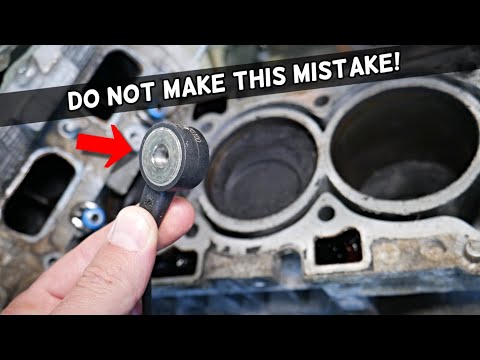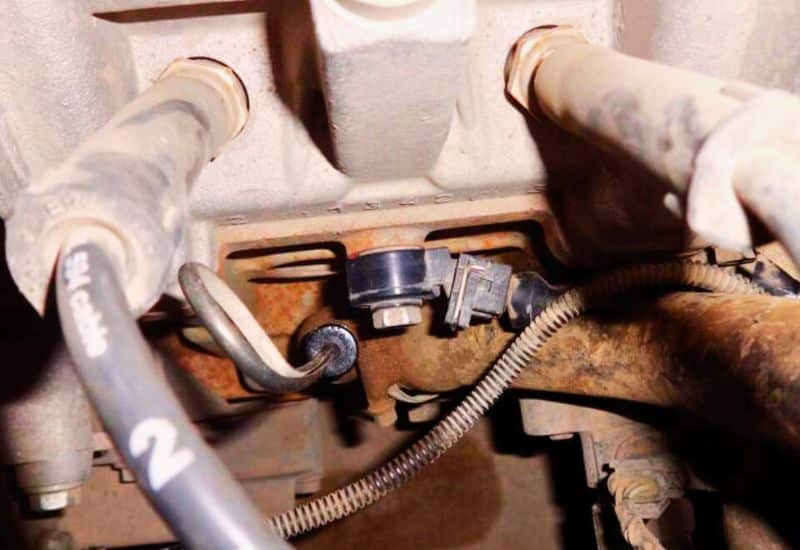
When a knock sensor goes bad the car’s ECU loose touch with the precise timing performance of the engine. This can lead to a loud pinging noise caused by spark knock, the engine feeling down on power, and eventually a check engine light.
Most of the time fixing a bad knock sensor is as simple as replacing it. While it’s not the most expensive fix in the world, it’s also not the sort of thing you want to keep happening. To keep your car running right, and spare you a $200 repair every few months, we’re going to have to take a look at the various things that can cause a knock sensor to go bad and what you can do to prevent them.
How Does a Knock Sensor Work?
The knock sensor uses a piezoelectric circuit that acts a little bit like a speaker that listens to the vibration of the engine and then transmits what it hears to the car’s ECU like a microphone. Inside the housing is a piezoelectric hollow ring that’s precision mounted between two electrical contacts.
Any time vibration is applied, low AC voltage travels between the two facets of the disc. This voltage signal is then sent through a shielded cable to the car’s ECU. From there the ECU “Brain” of the engine makes precise adjustments to optimize the timing and engine performance.
This makes the engine more fuel efficient, reduces emissions, and limits excess wear and tear on sensitive engine components. It also plays a factor in how and what gear the transmission selects.
While the internal components of the knock sensor itself can fail. It’s also possible for the shielded cable transmitting information to the ECU to short out or suffer corrosion on the connections.
Your car’s knock sensor is grounded to the engine block by the mounting screw. The sensor itself has two terminals, one for the signal and the other for the ground. The shielded cable only makes contact with the signal terminal. This isolates the ECU from being damaged by any sort of grounded short affecting the knock sensor.
When you turn your key to start the engine, your car’s ECU performs a self-test to check if the resistor within the knock sensor is functioning properly. If it doesn’t detect it, the ECU will usually throw a P0325 error code. Though an intermittent signal from a failing knock sensor might not throw a code if the ECU receives information during the self-test mode.
What Happens When Knock Sensor Fails?
If the knock sensor itself fails, it’s usually the internal piezoelectric element burning out or being damaged in some way. At that point, it either sends an intermittent signal to the car’s ECU or no signal at all, which confuses it causing it to struggle to adjust the engine’s timing correctly.
It’s also possible for a short in the shielded wire connecting the knock sensor to the ECU to short out or be damaged. The ECU is grounded separately, so the car’s computer “Brain” is safe, but the short damages the wiring connection and the knock sensor itself.
Common Symptoms of a Bad Knock Sensor
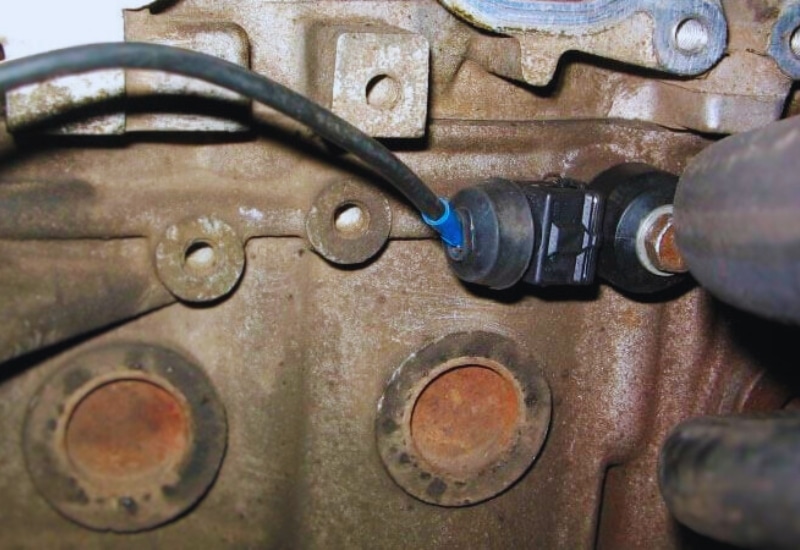
The early symptoms of a bad knock sensor like poor MPG and the engine feeling down on power are easy to confuse with other common and often simple engine faults. Though as time goes on they worsen and left unchecked can cause some serious engine damage.
5 Common Causes of a Bad Knock Sensor
A knock sensor can fail due to internal faults in the sensor itself or problems with the wiring that connects the sensor to the ECU. These issues can come from a variety of sources. If you don’t address the underlying cause of the bad knock sensor, any replacement sensor could just as easily fail again in the future. Here are the top five reasons :
1. A Short-Circuited Wire is a serious issue
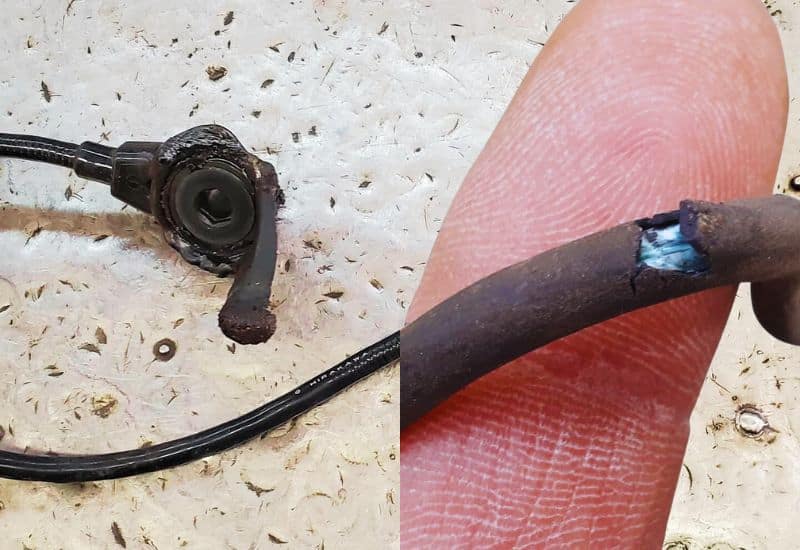
The shielded wiring running from the knock sensor to the car’s ECU is exposed to a lot of heat or other wear and tear. Over time it’s possible for the protective coating to degrade causing a short, which can burn out the somewhat delicate piezoelectric element within the knock sensor.
2. Corrosion From Weather Exposure
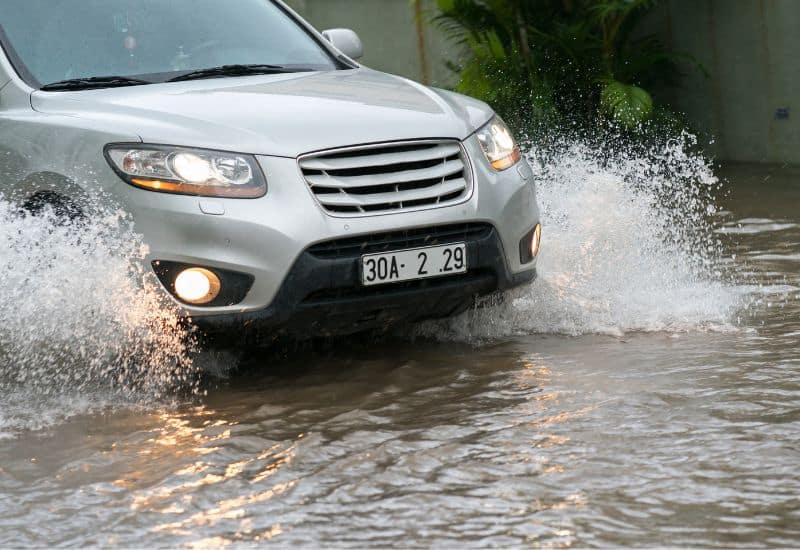
A bad knock sensor can also be caused by exposure to the elements. The most common is water that gets into the engine bay. This might be from driving through a deep puddle or strong winds in a rainstorm that let water get into the engine bay.
This can cause corrosion on the metal elements of the piezoelectric element. Though corrosion on the connection between the shielded wire running to the car’s ECU could also develop from weather exposure.
3. A Hot Running Engine
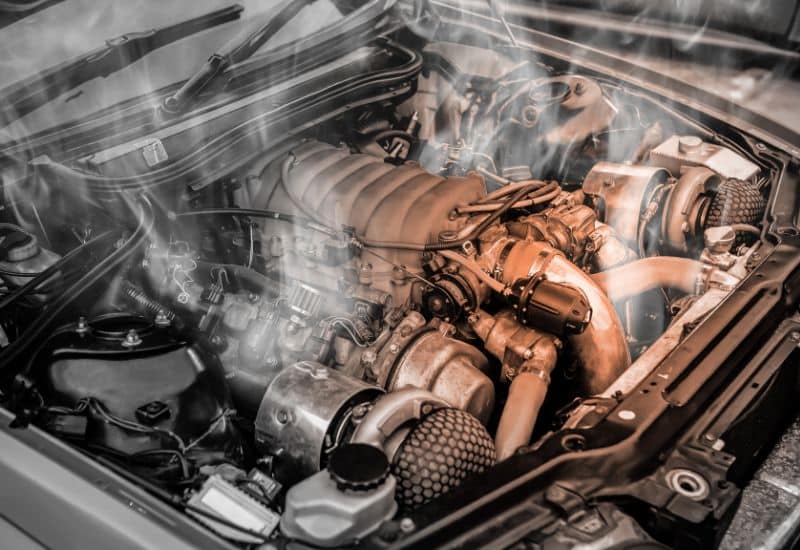
Knock sensors are mounted on or very near the engine block, which exposes them to a lot of heat. This can cause a failure in the wiring or lead to metal fatigue that fractures the piezoelectric element inside the knock sensor house.
In a case like this, the car might have overheated badly a few times, and even after the overheating issue is fixed, the knock sensor still fails on its own.
4. Look for Carbon Buildup & Engine Vibrations
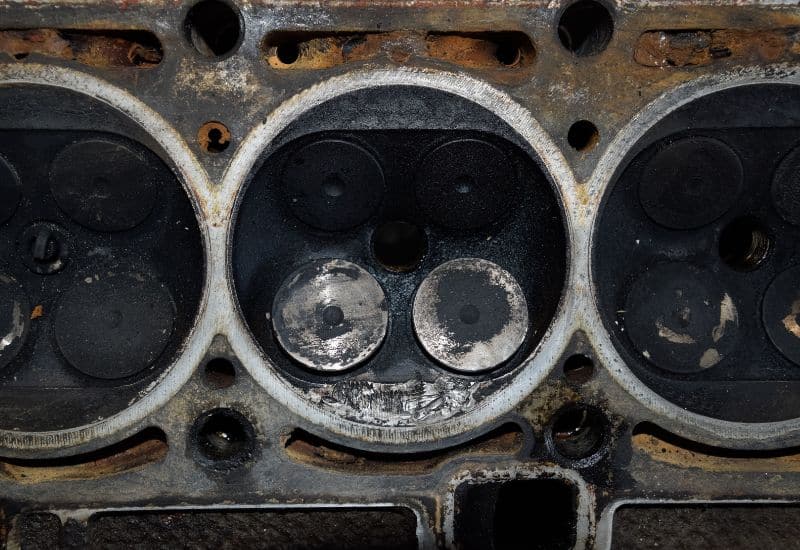
Carbon buildup in the cylinders can lead to spark knock and other severe engine vibrations which can damage a knock sensor. In a scenario like this, you’ll likely notice the engine knocking from time to time
The ECU might even be able to compensate for the spark knock at first. Though the recurring vibrations can damage the somewhat delicate components within the knock sensor.
5. Accidental Physical Damage
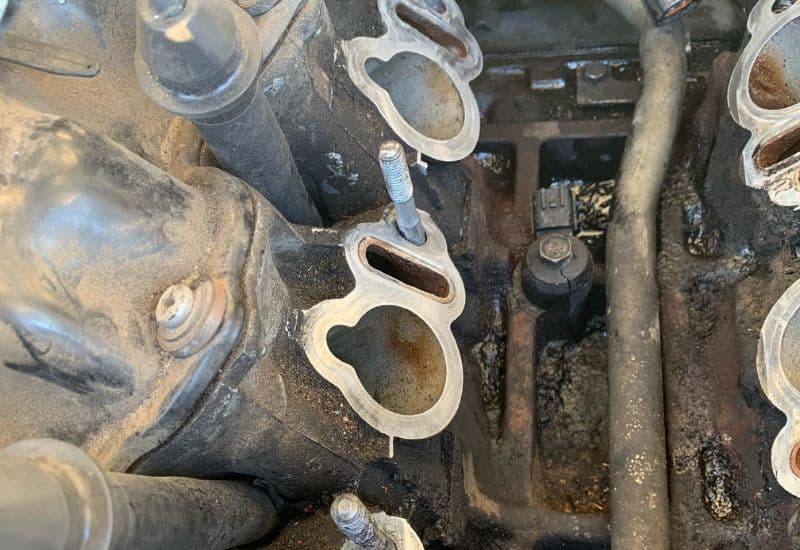
Most knock sensors are mounted to the engine block or the intake manifold and can get in the way when you’re working on something else in the engine bay. All it takes is a dropped tool or an accidental bang to damage the knock sensor housing, deform the piezoelectric element or damage the shielded wire running to the ECU.
How Much Does It Cost To Replace a Bad Knock Sensor?
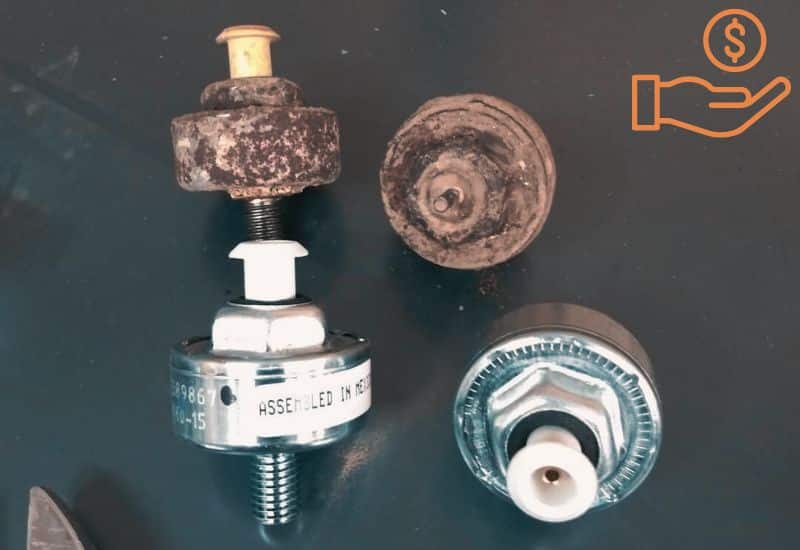
Fortunately, a bad knock sensor is relatively easy to replace on your own. You can usually find the replacement knock sensor for $50 to $150. Replacing it yourself can usually be done in around an hour or so, depending on how many other components you have to remove to get to it.
If you feel like it’s beyond your capabilities, there’s no harm in taking the car to a mechanic. They can usually replace the bad knock sensor with a good one and test the system for around $75 to $350.
Frequently Asked Questions
What happens if you keep driving with a bad knock sensor?
Driving with a bad knock sensor can do more than just cause poor engine performance. The spark knock and metallic pinging noise the engine makes can cause serious damage to the cylinders and piston components. The lag in power and performance can also cause the transmission to select or run in the wrong gear.
Can Low Octane Fuel Cause a Knock Sensor to Fail?
Running on low-octane fuel can lead to a spark knock in the cylinders. This doesn’t technically damage the knock sensor itself but can affect engine performance so much that the ECU can’t properly compensate for it. Spark knock can also damage the cylinders and other vital engine components.
How often do knock sensors need to be replaced?
Left to their own devices a knock sensor should be good for 100,000 miles or more. Though a frequently hot-running engine, excess moisture in the engine bay, and frequently running on low-quality fuel can all contribute to the knock sensor’s early demise.
Will an engine run without a knock sensor?
Your car’s engine will technically run without a properly functioning knock sensor for a while. Though problems with poor performance and potential damage caused by spark knock and/or transmission issues can cause serious damage the longer you drive. Not to mention the very real risk of the engine dying and leaving you stranded.
Conclusion
A bad knock sensor can be caused by short-circuited wires, a frequently hot-running engine, or weather damage that corrodes the piezoelectric element or the wiring connection. Since it’s grounded to the engine block any shorts that happen in the system will affect the knock sensor without directly damaging the ECU.
It’s also possible for corrosion from moisture, salt air, and even an accidental bonk while working on other engine components to damage a knock sensor causing it to fail.
The good news is that a bad knock sensor is usually within the realm of what a DIY mechanic can do at home for less than $150. Even if you have to take it to the mechanic the cost to replace a bad knock sensor is usually under $300.

Written By
Jason Farrell
Jason Farrell is a certified master technician, the editor of Mechanic’s Diary in Pittsburgh, Pennsylvania. He is ASE (Automotive Service Excellence) certified and earned a Bachelor’s Degree in Automotive Technology from Pittsburg State University. With nearly 18 prior years of experience in the automotive field, he has extensive knowledge about Domestic, European, and other foreign makes and models of cars and light trucks. Jason’s experience working as a technician and service manager at dealerships, gave him the experience and know-how of most aspects of inspection, diagnosis, and repair from engine and drivability to electrical, HVAC, brakes, steering and suspension and everything in between.

